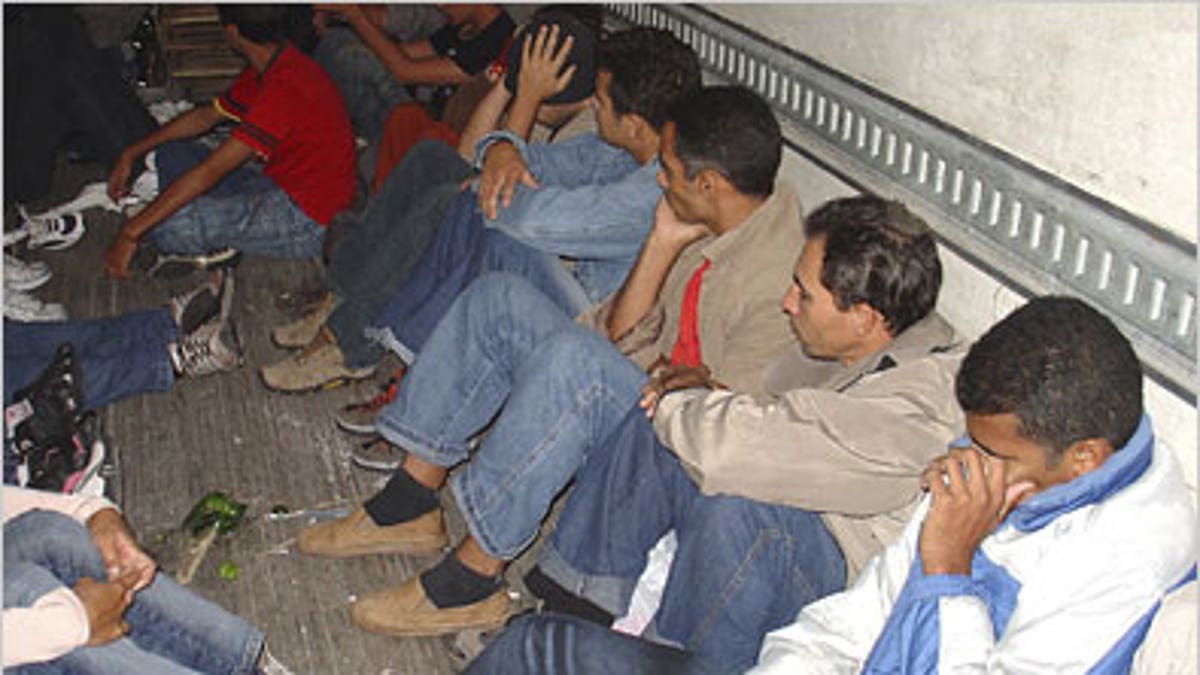Human trafficking's impact on young boys
'Fox Report' takes an exclusive look inside a Florida home helping boys who were exploited by human traffickers.
North Korea, Russia and Iran are among the nations cited in a new report as being among the least active in trying to curb the scourge of human trafficking, the form of "modern slavery" that's ensnared an estimated 40 million victims worldwide.
The comprehensive fifth annual report released this week by the Walk Free Foundation – which endeavors to bring global awareness to the crisis – charges that, while half the globe has stepped up its work to combat trafficking, many other countries haven't reported any meaningful change and some have even regressed.
North Korea is listed as the worst offender, followed by Eritrea, Libya, Iran, Equatorial Guinea, and Burundi. The top-ten worst list was rounded out by the Democratic Republic of Congo, Congo, Russia and Somalia.
SHUNNED CONGOLESE REFUGEE ON RAISING A SON BORN OUT OF RAPE: THE BABY HAD A RIGHT TO LIVE
These ten countries, according to the 2018 Global Slavery Index, accounted for more than 6.9 million victims. The reasons for the proliferation of human trafficking differ depending on the country. In places like Iran, there is a lack of political will to address the issue, while Equatorial Guinea is plagued by high levels of corruption, Libya is consumed in a protracted conflict and North Korea's government uses the threat of violence to force individuals into labor camps, Walk Free stated.

In this undated photo provided on Sunday, June 23, 2019, by the North Korean government, North Korean leader Kim Jong Un reads a letter from U.S. President Donald Trump. (Korean Central News Agency/Korea News Service via AP)
On the other end of the spectrum, the United States is among the nations working most diligently to stamp out trafficking.
Leading the way is the United Kingdom, followed by the Netherlands, the US, Portugal, Sweden, Argentina and Belgium. The final three spots as determined by Walk Free go to Spain, Croatia and Australia.
Countries such as Mozambique and Ethiopia are also given credit for taking some positive steps to address the crisis -- such as officially criminalizing human trafficking -- despite a lack of resources.
Yet, the report notes no country is immune to some form of trafficking, be it through forced labor, sex trafficking, debt bondage, forced or servile marriage or the exploitation of children. The number of people currently under the thumb of trafficking in some form, researchers say, is the highest it has ever been in human history.
Four years ago, the growing menace prompted all 183 United Nations member states to reach an agreement on the Sustainable Development Agenda with the aim of stemming the tide of trafficking. But in 2019, that agreed-to goal appears unrealistic. To meet the objective, at least 10,000 individuals would need to be freed from slavery every single day from now until 2020.
The Walk Free study underscored that, overall, governments are not on track to eradicate modern slavery by even 2030. While there is a trend that shows modest improvement, the report stressed, “the pace of change falls far short of what the scale and severity of modern slavery demands.”
“Current efforts are freeing a fraction of this number of people. The world must re-commit to this target, demonstrate real leadership and accelerate efforts,” Andrew Forrest, an Australian businessman and founder of the Walk Free Foundation, told Fox News. “We have no time to waste.”

(AP/U.S. Customs and Border Protection)
The Walk Free Foundation also condemned most nations – with only 40 countries exempt – for failing to investigate public or business supply chains who may rely on labor exploitation.
Moreover, experts believe the figure of 40.3 million people caught up in human trafficking, is only the tip of the iceberg.
“Even the best estimates likely remain conservative due to the challenge of quantifying such a hidden crime. There are far more victims of modern slavery than those identified and reported,” Forrest said. “Some countries don’t have any data on slavery, while others seek to measure it and put a lot of effort into training law enforcement and first responders to identify victims. Even then, the number of people identified as living in modern slavery is still only a fraction of our estimates.”

